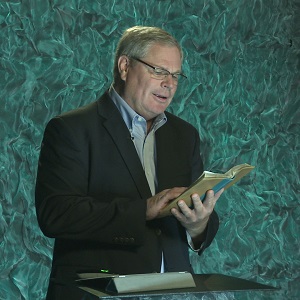Online Course - BB-02 - "Personal Finance:
Make More with What You Have"
Use the full-screen option in the player above or click here to see a larger player.
This course is a primer for more in-depth conversations about money, society and stewardship. It is an excellent lead-in to the Stewardship Season and builds the capacity for generosity through the application of ten economic principles for managing personal finance.
This course explores the relationship between Paul’s question to Timothy “How can a person manage God’s Church if he/she cannot manage his/her own household?”
The core activities center around both constructing a household budget and examining our relationship with money. Participants will gain a biblical foundation for why personal finance matters in the life of an individual (or family system) as well as acquiring tools that will lower anxiety.
The material lends itself well to a small group study. The material is presented in three sessions can be presented in a group setting as either a three-part study or be completed in a single session of approximately two and half hours.
A New Special Low Price To Make The Course Accessible
 We have made a special pricing of this non-credit version of this course in order to make this course available to individual people or groups of clergy, lay leaders, and congregants of churches in small study groups. Christian College and TransformingTheChurch have endeavored to make this course as RELEVANT and as ACCESSIBLE to as many people as possible. Our goal is foster a broad understanding of personal finance as a basis for creating the capacity for generosity. We offer this course to the Church and Her Servants with hopes that you can participate. Group discounts are also available for study groups of three or more.
We have made a special pricing of this non-credit version of this course in order to make this course available to individual people or groups of clergy, lay leaders, and congregants of churches in small study groups. Christian College and TransformingTheChurch have endeavored to make this course as RELEVANT and as ACCESSIBLE to as many people as possible. Our goal is foster a broad understanding of personal finance as a basis for creating the capacity for generosity. We offer this course to the Church and Her Servants with hopes that you can participate. Group discounts are also available for study groups of three or more.
The special low price of this course also allows people to try our online courses without significant investment in their on-going adult education.
A Self-Paced Course of Video-on-Demand Lectures
The course is composed of three online lessons delivered as high-quality video-on-demand lectures. You control the pace and can go faster or slower.
An Ideal Course for Both Individuals and Small Groups
This course is designed for both individuals and small groups who wish to learn more about the wise management of person finance. The course makes an excellent small-group study or a church-wide study. The material is condensed enough to be taught in a half-day workshop format still allowing plenty of tie for group discussions. The price of the course is purposely low enough to allow each member of the group to purchase their own access to the course materials to study individually either before or after a group meeting.
Online Distance Learning
This a distance-learning course that can be completed online without the need for travel; either across town or to another city. The course can be taken from a home, office or even a coffee shop. All you need is a web browser and a broadband Internet connection. The course can be successfully used by people with only the most basic of computer skills.
Additional Information About This Personal Finance Course
In the sidebar on the right side of the page, there is additional information about this course. Please explore these pages for more information.
Course Instructor: Rev. Bruce Barkhauer

The Reverend Bruce A. Barkhauer was called as the first “Minister for Faith and Giving for Christian Church (Disciples of Christ)” in 2010. He is the Director of the Center for Faith and Giving, a General Ministry of the Christian Church (Disciples of Christ) in North America.
For twenty-five years, he has led congregations in Ohio and Indiana in achieving high levels of financial support for local and global missions, and he now shares his experience across the life of the whole church.
His energy, vision, and entrepreneurial spirit enhance gifts in both business and ministry. He brings a biblically based understanding about stewardship combined with theological integrity and weds them to the current trends and best practices related to spirituality and money. In his workshops and writings, Rev. Barkhauer also talks about the multiple understandings about stewardship in the biblical witness as they touch the whole life of a person of faith.
He is a graduate of Ohio University (Athens), Christian Theological Seminary (Indianapolis) and did Doctor of Ministry studies at Ashland Theological Seminary (Ashland, OH). During his ministry he has served both the Regional and General Manifestations of the Christian Church (Disciples of Christ) by providing leadership in areas of stewardship and finance, personnel management, video production and direction, as a parliamentarian, and with matters of spiritual discernment. He has served as adjunct faculty at Lexington Theological Seminary and Claremont School of Theology as well as a Field Work Supervisor for Louisville Presbyterian Theological Seminary.
